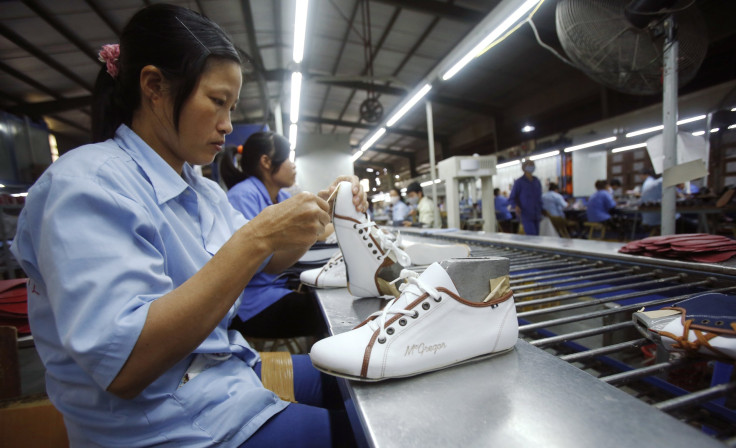Will The Trans-Pacific Partnership Improve Labor Standards?

After years of increasingly nail-biting talks, negotiators from the United States, Japan and 10 Pacific Rim nations agreed Monday to the largest regional trade deal in history. Supporters of the Trans-Pacific Partnership, which include the likes of President Barack Obama and U.S. Trade Representative Michael Froman, promise it contains the strongest labor standards of any trade agreement ever. But if the past is any indication, one ought to take such pledges with a healthy dose of skepticism.
Since the early 1990s, U.S. officials have made similar claims about free trade deals with Mexico, Central America, the Dominican Republic, Peru, Colombia, Panama and South Korea. Once the deals have actually taken effect, Democratic and Republican administrations alike have rarely enforced the treaties’ labor standards. One of the TPP’s most outspoken critics in Congress, Sen. Elizabeth Warren, D-Mass., has slammed the White House over this record.
“Again and again, proponents of free trade agreements claim that this time a new trade agreement has strong and meaningful protections,” read a report released by the senator earlier this year. “Again and again, those protections prove unable to stop the worst abuses.”
Last year, the investigative arm of Congress, the Government Accountability Office, looked at the labor standards in U.S. free trade agreements with Central America and the Dominican Republic, Colombia, Oman and Peru. The protections, similar to those reportedly in the TPP, are supposed to ensure workers’ basic rights to organize unions and speak out on the job. But federal researchers found that “consistency with [free trade agreement] labor provisions in most partner countries is generally not monitored and enforced systematically.”
Since 2008, the Department of Labor has accepted five claims against countries for possibly violating labor commitments in trade agreements. Only one has been resolved, against Peru. U.S. officials also missed their self-imposed deadline for investigating and issuing public reports on these submissions by an average of nine months, the GAO found.
Past deals with strong labor provisions appear to have done little to stop some of the most egregious abuses of worker rights. Five years after it entered into the Dominican Republic-Central America Free Trade Agreement with the United States, Guatemala was named “the most dangerous country in the world for trade unionists.” This year, it ranked alongside Colombia as one of the 10 most dangerous countries for workers, according to an annual report from a global labor federation.
Still, American trade negotiators insist it’s different this time around.
Officials have not yet released the full details of the agreement. But it reportedly commits all parties to the International Labor Organization’s Declaration on Fundamental Principles and Rights at Work -- respect for the right to collectively bargain, the elimination of forced labor and child labor and the elimination of employment discrimination. On paper, U.S. trade deals have adhered to this since 2007. But on top of that, the Pacific agreement contains provisions on minimum wages, maximum hours and occupational health and safety, according to the USTR. It remains unclear how rigorous they are.
Moreover, negotiators say they brokered side agreements with Vietnam, Malaysia and Brunei on the enforcement of labor standards. These deals would allow the U.S. to reinstate tariffs if the countries break commitments. The nations all have business climates that are generally regarded as hostile to workers: Vietnam is a communist dictatorship that bans independent unions and has minimum wages as low as roughly $100 a month in some regions; in Malaysia, nearly 1 in 3 migrant workers was employed in a forced situation, according to an independent study released last year; Brunei’s legal code prescribes a death sentence for homosexuality, let alone allows LGBT people to serve openly on the job.
The agreement, which will likely be made public in the next month, is expected to spark heated debate in Congress. Earlier this year, legislators voted by a razor-thin margin to grant the Obama administration so-called fast-track authority. As a result, members of Congress are barred from amending the deal and are limited to a simple up-or-down vote. American labor unions, among the most passionate critics of the Trans-Pacific Partnership, are preparing for a last-ditch lobbying effort to kill the deal.
© Copyright IBTimes 2024. All rights reserved.






















